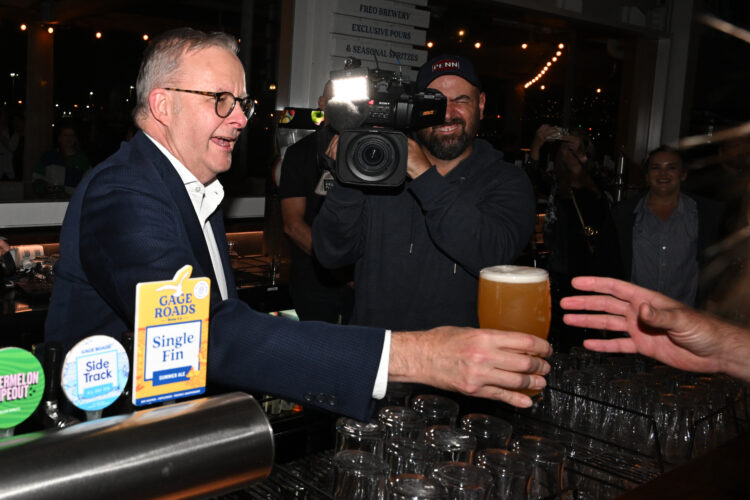New polling research by The Australia Institute reveals that 86% of Australians want stronger legal protections for whistleblowers.
The research, supported by the Human Rights Law Centre and Whistleblower Justice Fund, shows support is consistently high across all voting intentions, including Labor, Coalition, Greens, and One Nation.
Public support for protecting whistleblowers has surged by 12% in under two years.
The spike in support has been recorded just one year after the imprisonment of military whistleblower David McBride and amid the ongoing prosecution of tax office whistleblower Richard Boyle. The polling research also reveals that the majority of Australians believe these prosecutions should be dropped.
Despite strong, widespread and increasing public support for stronger whistleblower protections from voters, both major parties have failed to make commitments for reform ahead of the May 3 Federal Election.
In February 2025, the Whistleblower Protection Authority Bill was introduced to Parliament by Senator David Pocock, Senator Jacqui Lambie, Dr Helen Haines MP, and Andrew Wilkie MP.
This anti-corruption legislation would provide protections to whistleblowers and aid government agencies in combating corruption. The polling research reveals that 84% of Australians support the establishment of a whistleblower protection authority.
“In Australia, whistleblowers exposing alleged war crimes or unfair treatment of small businesses face years of jail time,” said Bill Browne, Democracy & Accountability Director at The Australia Institute.
Blowing the whistle often comes at great personal cost – to work and earnings, relationships and even health. A whistleblower protection authority would support and assist truth-tellers.
“The National Anti-Corruption Commission will depend on referrals from whistleblowers and others if it is to effectively root out corruption.”
“Voters want the government to stop delaying and fix Australia’s broken whistleblower protection laws,” said Tosca Lloyd, campaigner at the Whistleblower Justice Fund.
“Fighting corruption is once again a key election issue – but the major parties can’t fight corruption while continuing to punish those who expose it.
“A whistleblower protection authority is the missing piece of Australia’s anti-corruption framework, and both major parties have previously signalled support for such a body. Ahead of the federal election, now is the time for the major parties to commit to stronger whistleblower protections.”
“Whistleblowers make Australia a better place and this polling shows that overwhelmingly people expect them to be protected, not prosecuted in Australia,” said Kieran Pender, Associate Legal Director at Human Rights Law Centre.
“The next Parliament must fix our broken whistleblower protection laws and establish an independent whistleblower protection authority.”
